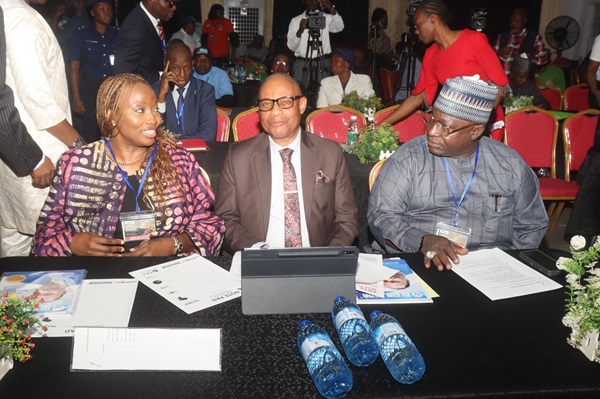
The Federal Government has reaffirmed its commitment to enhancing the viability of Nigeria’s airports, emphasising their critical role in driving the success of the nation’s aviation sector.
This was highlighted by the Minister of Aviation and Aerospace Development Festus Keyamo, SAN, who was represented by the permanent secretary of the ministry, Dr. Emmanuel Meribole at the 9th Airport Business Summit and Expo held in Lagos on Wednesday, August 21, 2024.
In his keynote address at the summit, themed “Addressing Airport Viability as Key to Successful Aviation Business Ambition,” Meribole emphasised the importance of sustainable, profitable and efficient airport operations as the foundation for the aviation industry’s growth. He underscored the vital role that airports play within the broader aviation ecosystem, describing them as hubs of economic activity that connect cities, regions and countries, facilitating the global movement of goods and people.
Meribole stated that the success of airlines and other aviation-related businesses is inextricably linked to the strength and viability of the airports they rely on. “Airport viability is not just a priority; it is a necessity for any ambitious aviation business,” he noted. He outlined several critical factors essential to achieving this viability, including sustainable financial models, operational efficiency, infrastructure development, environmental sustainability, and the strategic use of public-private partnerships (PPPs).
The minister also spoke about the broader role of airports in national and regional development. “Airports are not just aviation issues; they are a national economic imperative,” he said. He detailed the five focus areas of the Ministry of Aviation and Aerospace Development, which align with President Bola Ahmed Tinubu’s ‘Renewed Hope’ agenda aimed at enhancing airport viability. These focus areas include sustainable financial models, infrastructure development, human capital development and the adoption of eco-friendly practices and policies. He urged delegates and experts at the summit to work towards actionable plans that would propel Nigeria’s aviation industry into its next phase of growth through strategic investments, innovative approaches, and collaborative efforts.
The Managing Director of the Federal Airports Authority of Nigeria (FAAN) Olubunmi Kuku also emphasised the importance of collaboration in ensuring the sustainability and success of the nation’s airports. In her presentation titled “Improving Airport Viability through Multistakeholder Engagement,” Kuku highlighted the increasing significance of airports in a globalised world, where they serve not only as gateways to nations but also as economic engines, cultural connectors and symbols of national pride. “Airports are more than just infrastructure; they are vital components of socio-economic development,” she said.
Kuku further stated that airport viability extends beyond mere financial profitability. It encompasses operational efficiency, safety, security, environmental sustainability and customer satisfaction. She stressed that achieving airport viability is a collective responsibility that cannot be accomplished by any single entity. Kuku called for the active participation of all stakeholders to realise the vision of world-class airports in Nigeria.
Acting Chief Operating Officer and Head of Aeronautics and Cargo at Bi-Courtney Aviation Service Limited Remi Jibodu underscored the importance of strategic partnerships and strict adherence to Service Level Agreements (SLAs) in ensuring the long-term viability of airports. In his address, Jibodu highlighted the critical role of collaborative efforts among various entities within the airport ecosystem, including airlines, ground handlers, cargo operators and service providers. “Partnerships form the bedrock of success in the aviation industry,” he said. “When built on mutual trust and shared goals, they can lead to innovations that streamline operations, enhance safety, and significantly improve the overall customer experience.”
Jibodu also emphasised the importance of SLAs as a framework for maintaining high standards of service and operational excellence. “SLAs are more than just contracts; they provide a clear benchmark for performance, which is crucial for maintaining the efficiency and reliability of airport operations,” he explained. He added that when all parties are committed to meeting or exceeding these standards, the result is reduced costs, higher customer satisfaction, and improved operational efficiency.
Earlier in the event, the convener of the Airport Business Summit Fortune Idu welcomed participants, noting that the summit and expo is the only dedicated airport business gathering in Nigeria, modeled after Airport Council International (ACI). He explained that the summit focuses on implementing ACI’s reports, findings and best practices to enhance airport performance in supporting air connectivity in Nigeria.
The three-day event featured exhibitors from various airports, ground handling companies and other stakeholders, including the Ministry of Health. Awards and presentations were given to exhibitors and airport managers who have distinguished themselves in the industry.

